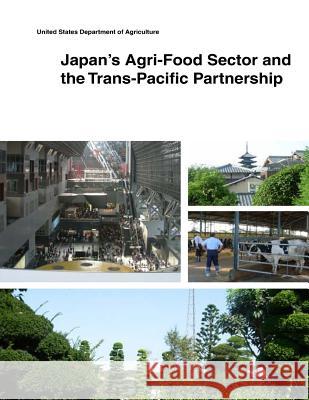Japan's Agri-Food Sector and the Trans-Pacific Partnership » książka
Japan's Agri-Food Sector and the Trans-Pacific Partnership
ISBN-13: 9781505433654 / Angielski / Miękka / 2014 / 34 str.
Japan's Agri-Food Sector and the Trans-Pacific Partnership
ISBN-13: 9781505433654 / Angielski / Miękka / 2014 / 34 str.
(netto: 64,60 VAT: 5%)
Najniższa cena z 30 dni: 67,46
ok. 16-18 dni roboczych
Dostawa w 2026 r.
Darmowa dostawa!
Japan's agriculture has been inward oriented, protected by trade barriers from foreign competition. Even though the share of Japan's food consumption provided by Japanese production has gradually fallen, Japan's farm sector remains the second-largest among the countries negotiating the Trans-Pacific Partnership (TPP). Japan's food industry is increasingly integrated with TPP economies, although the TPP share of Japan's agri-cultural imports has fallen over time. The proposed TPP agreement would lead to more agricultural exports to Japan from TPP partners, likely dominating the total agricultural trade impact of such an agreement. Despite potentially large import increases, espe-cially in the rice, beef, and dairy sectors, the proposed agreement would only margin-ally reduce Japan's output. Intrinsic strengths of Japanese agricultural production and constraints to the growth of supply in the rest of the TPP countries may limit the impact of the agreement on Japan's agriculture. Nevertheless, U.S. exports would be well posi-tioned to meet Japan's new import demand.
Zawartość książki może nie spełniać oczekiwań – reklamacje nie obejmują treści, która mogła nie być redakcyjnie ani merytorycznie opracowana.











